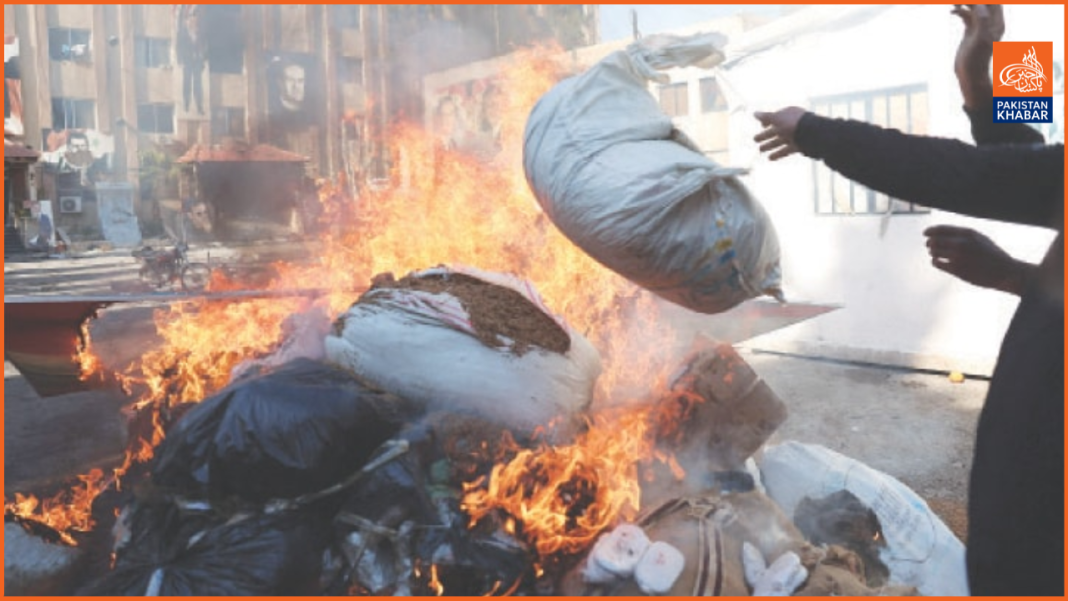DAMASCUS: In a significant move against drug trafficking, Syrian authorities destroyed a vast cache of illegal substances on Wednesday, including one million Captagon pills. This action was part of a broader effort to dismantle the drug trade, which flourished under the previous regime of Bashar al-Assad, turning Syria into a narco-state during the prolonged civil war.
Captagon, an amphetamine-like stimulant, became Syria’s largest illicit export, flooding the black market and reaching countries like Saudi Arabia, where it gained widespread use. A security official, who identified himself as Osama, revealed that the authorities discovered around one million Captagon pills. The security forces set fire to a large stockpile of cannabis, tramadol, and Captagon pills at a compound once controlled by Assad’s forces in Damascus’ Kafr Sousa district.
The new Syrian government, which took power following a swift offensive that ousted Assad on December 8, has committed to destroying drug manufacturing sites and cutting off smuggling routes that had been used by Assad’s family businesses. Security personnel, including Hamza, another official involved in the operation, confirmed that this was part of a series of drug seizures from former government facilities across the country.
This initiative follows reports of the widespread Captagon trade in Syria, with millions of pills being discovered at various locations. Authorities have also located multiple drug warehouses and manufacturing sites previously linked to the Assad regime. Experts believe that Maher al-Assad, Bashar al-Assad’s brother, played a key role in the illicit Captagon trade, leveraging the drug trade to exert political pressure.
As the new Syrian leadership seeks to shift the country away from its dark legacy, these actions are part of a broader push to restore stability and eliminate drug-related activities.




